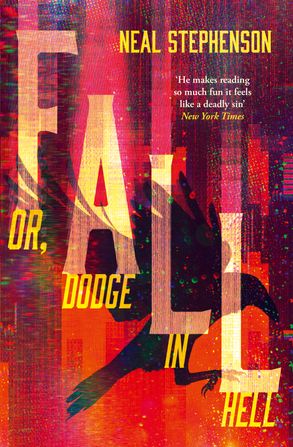Neal Stephenson - Fall
Neal Stephenson 2015. Fall. Or Dodge in Hell. Sydney: Harper Collins. 883 pp.

A great deal of thought and work has gone into this novel. And yet, not nearly enough. Badly in need of a harsh but constructive editor, is Neal Stephenson. A tight novel of 300 or so pages could have resulted from this first draft if the author gave a bit of thought to what are the big ideas and what are not. Mostly they are not. Just for example, a hard sf novel engaging with Big Ideas doesn’t need to have explanations of how characters connect with wifi or how clever they are OCR-ing photographs of text. Especially when vastly more challenging and interesting ideas don’t feature at all. For example how exactly does a scanned brain interact with the operating system in the digital world in which it is inserted? What are legal and what are illegal commands? Is there a manual? And this bitworld of reborn consciousnesses happens pretty much in a vacuum. The rest of humanity hardly rates a mention other than viewing goings on as some kind of Big Brother reality show. Is this the extent of social reaction to the advent of digital eternal life? What of the billions who surely can’t afford a brain scan on death? No global upheaval? I think not.
One is left to such ruminations because the main story holds so little interest. The one redeeming section was the nicely written imagining of Dodge’s consciousness reawakening in a digital world, struggling with chaos. But the digital world quickly becomes very Old Testament. Is Stephenson saying that folk, given the chance, are only ever going to recreate their own limited worlds? Or is this Stephenson’s own limitation? Then digital eternity goes really really nutty: quests, challenges, palaces, angels and the like. Evidently it is Stephenson’s take on Paradise Lost. I wouldn’t have been surprised though if Frodo appeared. I reckon most readers will skip past pages 50 at a time in the back half of the book hoping that something might happen. Don’t bother.


